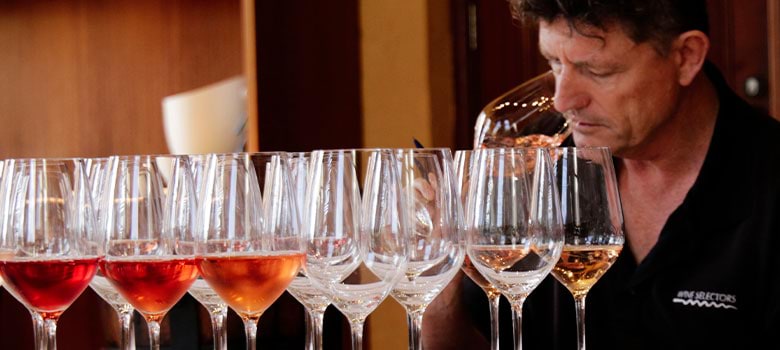
Wine
Learn the secrets to tasting and appreciating wine like our Tasting Panel
Wine tasting shouldn’t be daunting or complicated, you just need to know a few basic steps and a willingness to develop your palate. To get you started, we put together this short video by our Wine Expert and Tasting Panellist Adam Walls which gives you a guide to start wine tasting like the professionals!
WINE TASTING ENVIRONMENT
Set yourself up somewhere with neutral lighting, low noise and not too many strong or distracting odours. It’s much harder to appreciate the subtleties of taste if you can smell last night’s curry or freshly spritzed perfume. Ideally your environment should not be too hot or cold. Most wine professionals assess the wine at room temperature so they can appreciate the wine’s character in full.
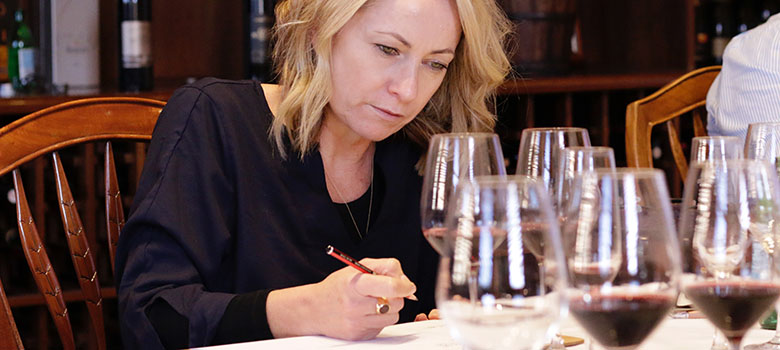
COLOUR OF THE WINE
Observe the wine in your glass and consider its colour and general appearance. Tip the glass away from you and preferably have a white or neutral tablecloth as background. Examine the clarity of the wine and the intensity and depth of its colour. The look, colour and opaqueness of a wine can tell you a lot about it. Whether it is aged, how much alcohol it contains, and the potential grape variety.
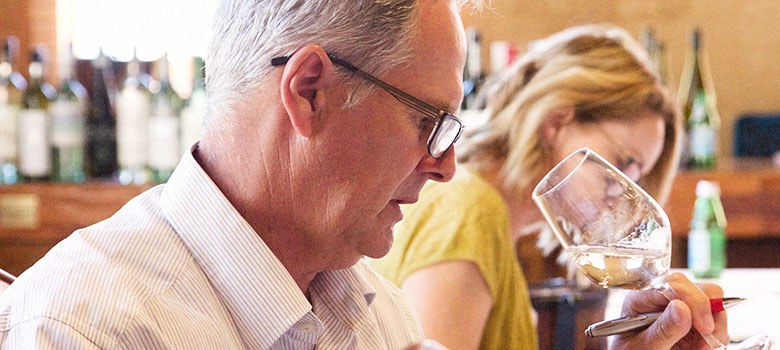
AROMAS OF THE WINE
Swirling the wine is not just for fun, it helps to release the wine’s aromas. Start by taking some short, sharp sniffs and think about first impressions before moving to longer inhalations through your nose. What aromas can you identify? Think generally about whether you detect citrus or berries, as opposed to individual fruits. This is far less intimidating and will help to get you started.
Each grape variety has a signature aroma known as a primary aroma. For example, Chardonnay has stone fruit note, and Riesling is known to smell of limes.
Secondary aromas relate to how the wine has been made. Toasted wood and vanilla from oak barrels, stalk notes from fermentation or yeast notes from aging on lees in sparkling wine; these are all secondary aromas.
Tertiary aromas reveal themselves in aged wine. Notes such as earth, leather and cedar appear in red wines. Honey, hay and citrus curd appear in aged whites.
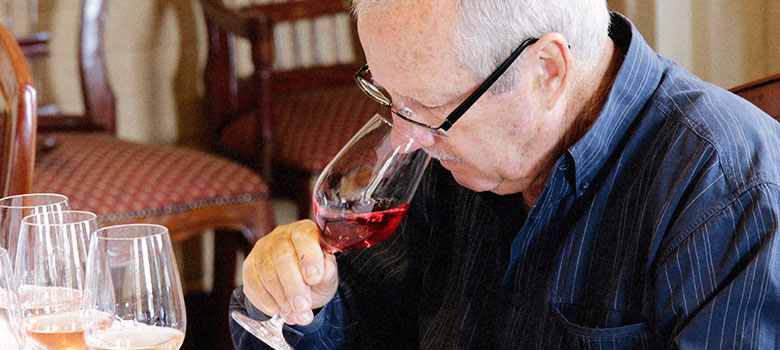
THE TASTE OF THE WINE
Start by taking a small sip and inhaling some air at the same time. It might sound strange but this will ensure you can assess the fullness of the wine’s flavour in your mouth.
Think about the initial impression the wine makes on your tongue followed by the multitude of flavours, texture and the length. Does it taste salty? Sour? Sweet? Or bitter? Consider the acidity of the wine. The acidity or ‘sharpness’ of the wine will help you to determine whether it comes from a cool climate region or if the grapes were picked early.
Alcohol levels can affect the feel of the wine in your mouth. Is the texture rich or very fine? Higher levels of alcohol can add more body and texture and give an impression of sweetness.
If you are tasting a red wine can you taste the tannins? Tannins create the drying sensation you can feel on your palate, with every grape variety showcasing different levels.
Finally, how does the wine ‘finish’ in your mouth? Does it stick around or disappear instantly? Consider the wine’s lasting impression on you and whether you want more.
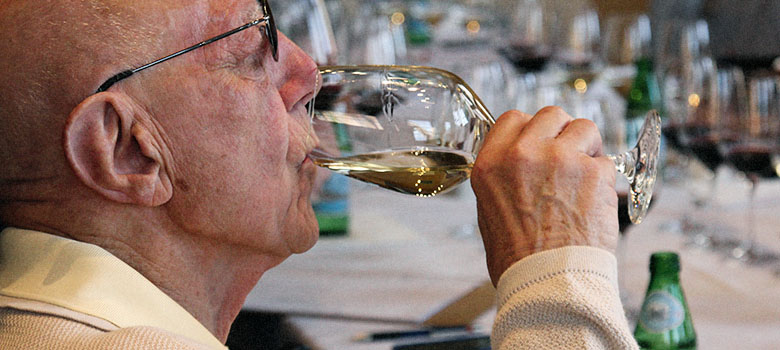
DISCOVER YOUR WINE TASTE
Consider each wine and make detailed notes as you go. Was it a well-balanced wine? What fruit flavours could you discern? Was it full-bodied? The more you practice wine tasting, the more you will note varietal similarities and differences, learning about what you love most and what you dislike.
There you have it - a guide to how to taste wine like a professional! And remember that practice makes perfect so happy tasting!
Want to take your wine knowledge to the next level? We’ve got you covered. Check out more of our Wine 101 pieces here or watch our short video series; Adam Wall’s Wine Hints and Tips. Now if you’ll excuse us, we have some open bottles we need to taste in the proper fashion…